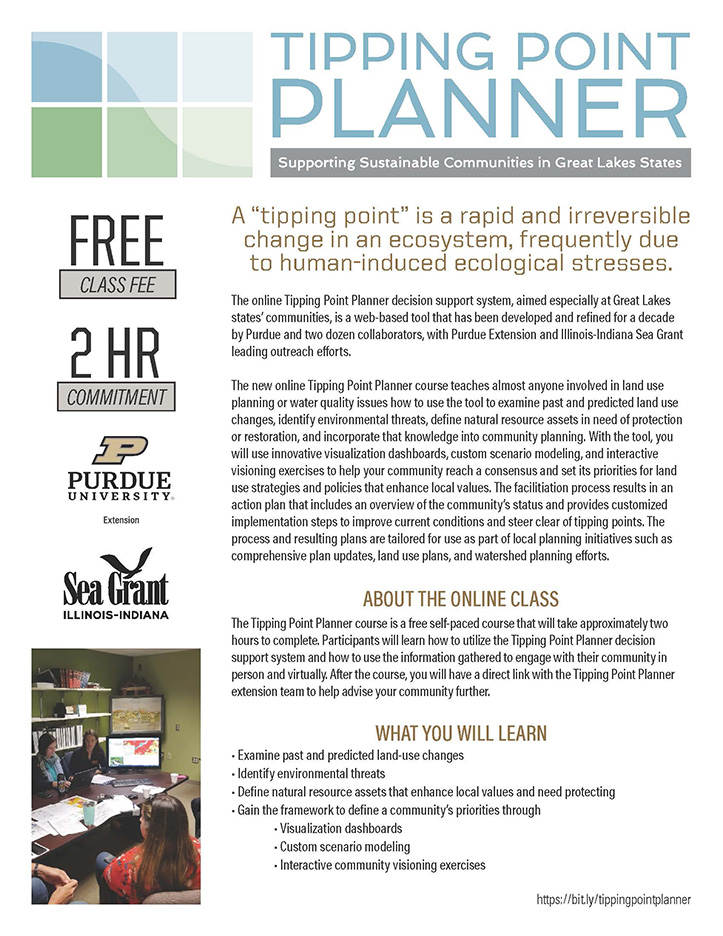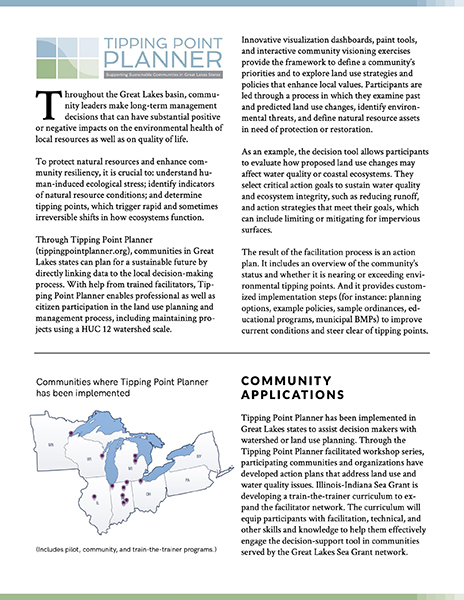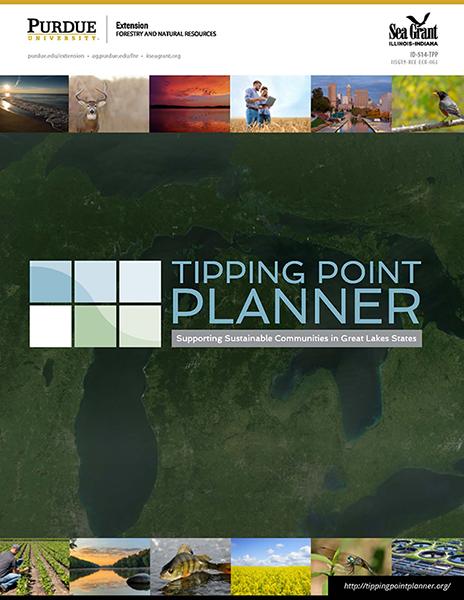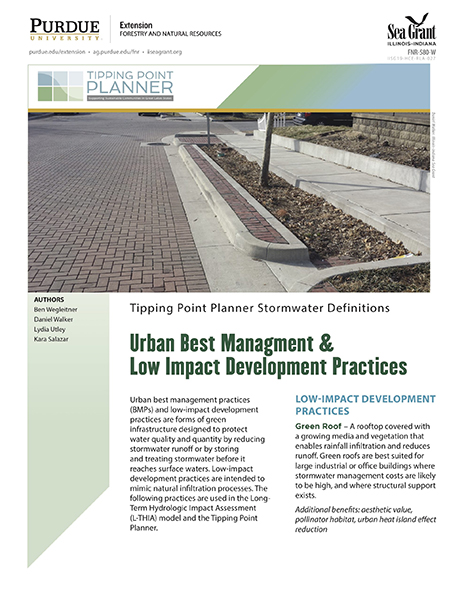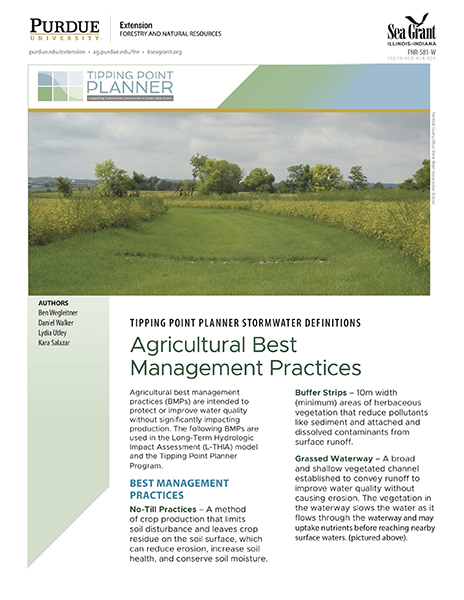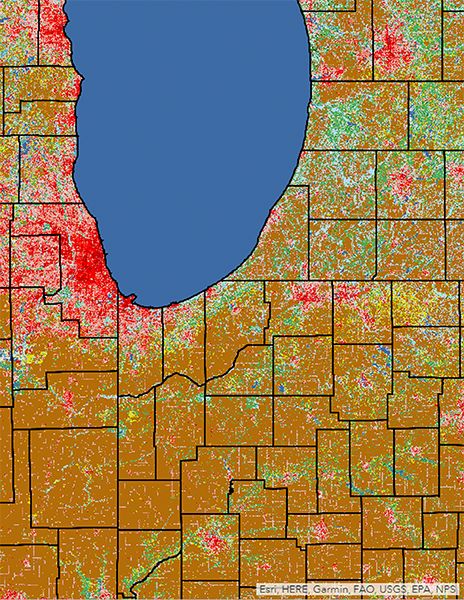tipping point planner
Community leaders throughout the Great Lakes basin make long-term management decisions that affect the environmental health of local resources and communities’ quality of life.
Protecting natural resources while enhancing community resiliency requires:
- Understanding of human-induced ecological stress
- Identification of indicators for natural resource conditions
- Determination of tipping points, which trigger rapid, sometimes irreversible shifts in ecosystem functions
Through Tipping Point Planner, Great Lakes communities can plan sustainable futures by directly linking data to their local decision-making processes.
Trained facilitators enable both professional and civic participation in land-use planning and management, including maintaining projects using a HUC 12 watershed scale.
Participants in Tipping Point Planner will:
- Examine past and predicted land-use changes
- Identify environmental threats
- Define natural resource assets in need of protection or restoration
- Explore land-use strategies and policies that enhance local values
- Gain the framework to define a community’s priorities through
- Visualization dashboards
- Paint tools
- Interactive community visioning exercises
For example, the Tipping Point Planner decision support tool lets participants evaluate how proposed land-use changes may affect water quality or ecosystems. In this instance, they would choose critical action goals to sustain water quality and ecosystem integrity (such as reducing runoff) and action strategies to meet their goals (such as limiting or mitigating for impervious surfaces).
Target Audiences
Our curriculum is designed for use by decision-makers who have oversight and management of ecological and land-use services, including:
- Local leaders
- Government officials and their staffs
- Representatives from nongovernmental organizations
- Residents who want to participate in decisions concerning local natural resources
Outcomes
The end result of this program’s facilitated process is an action plan that includes:
- An overview of the community’s status
- Potential environmental tipping points, and proximity to those tipping points
- Customized implementation steps to improve conditions / steer clear of tipping points, such as:
- Planning options
- Example policies
- Sample ordinances
- Educational programs
- Local government best management practices
To explore the decision support tool, visit the Tipping Point Planner Website.
To develop a program that fits your community planning needs, contact:
Kara Salazar, AICP, PCED, LEED AP ND, Assistant Program Leader and Extension Specialist for Sustainable Communities
salazark@purdue.edu
Purdue Extension, Department of Forestry and Natural Resources, Illinois-Indiana Sea Grant
Daniel Walker, AICP, Community Planning Extension Specialist
walke422@purdue.edu
Purdue Extension, Department of Forestry and Natural Resources, Illinois-Indiana Sea Grant
